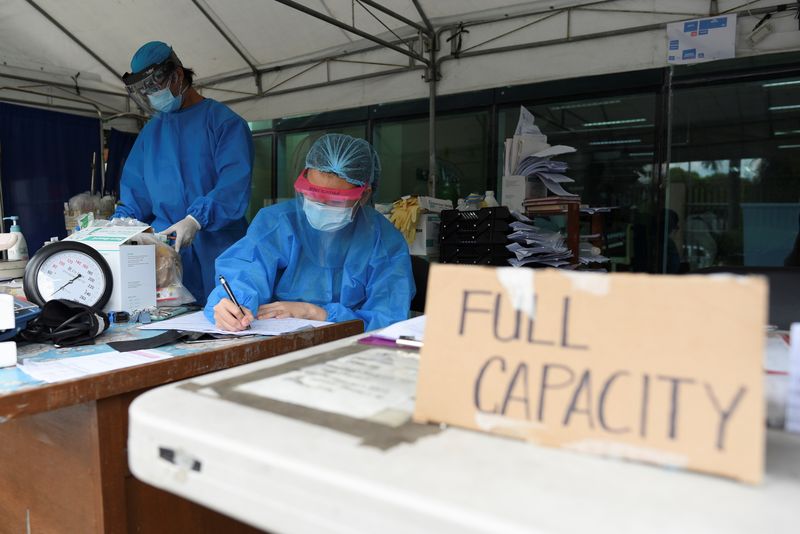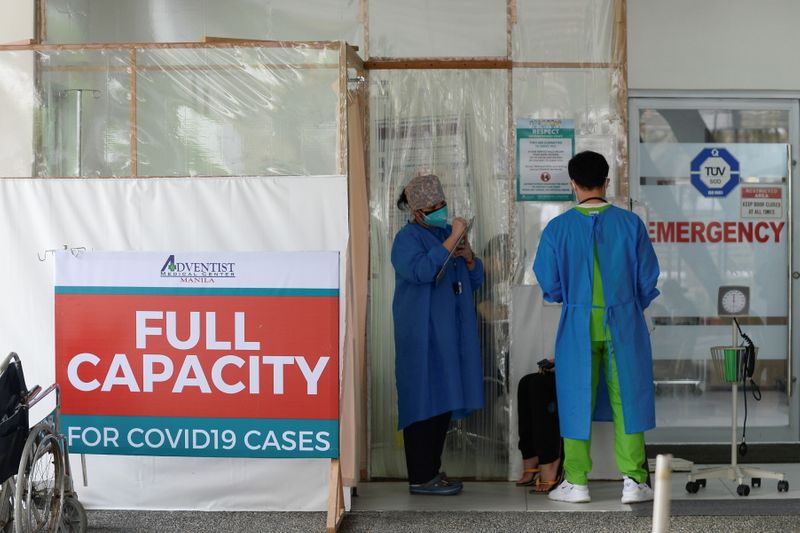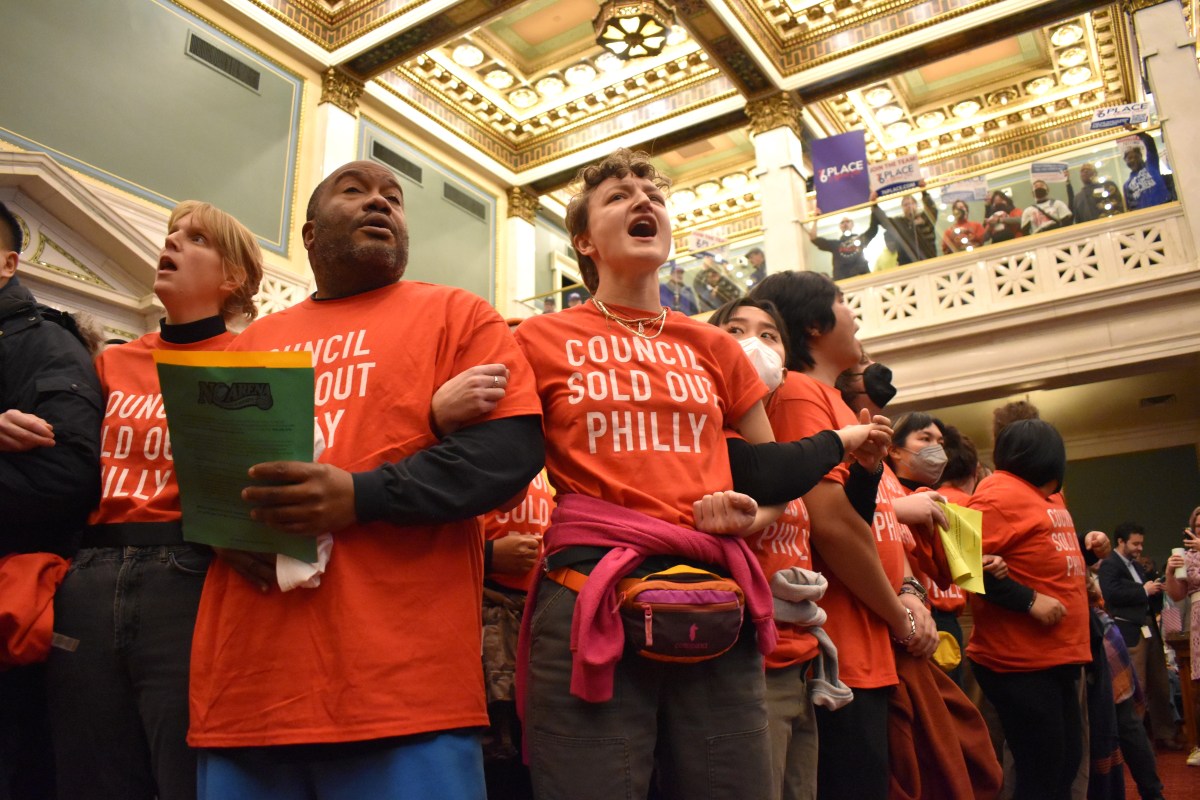MANILA (Reuters) – Strict COVID-19 lockdowns in the Philippines capital and four adjacent provinces will be eased from April 12, a spokesman for President Rodrigo Duterte said on Sunday.
Metro Manila and the provinces of Bulacan, Rizal, Laguna and Cavite will be placed under a less restrictive community quarantine status until April 30, spokesman Harry Roque told a virtual briefing.
Roque gave the briefing from hospital where he is being treated for COVID-19. He gave no details on which restrictions will be eased but said details would be released on Monday.
The Philippines is battling one of the worst coronavirus outbreaks in Asia, with hospitals in the capital overwhelmed amid record daily infections, while authorities face delays in delivery of COVID-19 vaccines.
On Sunday, the Department of Health recorded 11,681 new COVID-19 cases and 201 more deaths, bringing the country’s tallies to 864,868 confirmed infections and 14,945 fatalities.
New cases have surge in recent weeks, surpassing 15,000 on April 2, most of those in the congested capital.
Last week, Duterte cancelled a weekly televised address and a meeting with his coronavirus task force as some of his staff and security detail were found to be COVID-19 positive.
Roque and Duterte’s defence minister, Delfin Lorenzana, also tested positive.
Roque said the government will work to increase the number of COVID-19 beds in healthcare facilities and free up more room in hospitals.
Under the current quarantine classification for Manila and surrounding areas, non-essential movement is banned, along with mass gatherings and dining in restaurants, with longer-than-usual curfews also in place since March 29.
The reimposition of strict lockdowns has raised concerns the economy will take longer to recover from last year’s worst slump on record.
(Reporting by Enrico Dela Cruz; Editing by Jacqueline Wong and Kim Coghill)


























